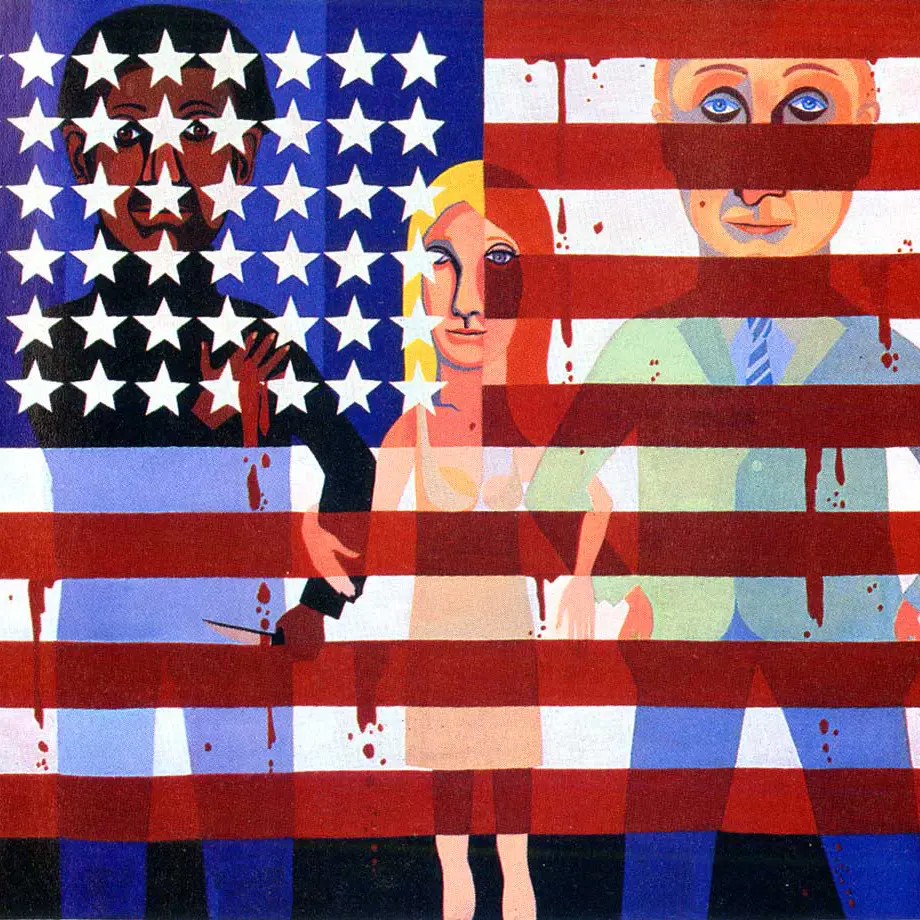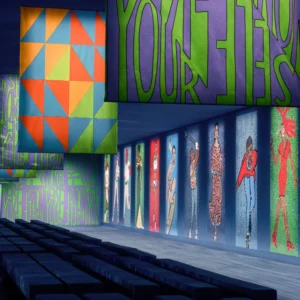Celebrated for her pictorial quilts depicting the African American experience, Faith Ringgold passed away at the age of 93 at her home in New Jersey. Ringgold explored themes of race, gender, class, family, and community through painting, sculpture, textiles, and performance art.
Over the span of more than fifty years, Ringgold’s artistic career was characterized by her ability to navigate multiple spheres, blending messages with form and high art with craft. She integrated craft materials like fabric and beads with fine-art mediums, using vibrant colors and a deliberately flattened perspective reminiscent of naïve painters.
In the mid-1960s, inspired by James Baldwin, she began her American People series, which tackled social and political themes. Frustrated by the lack of representation for Black artists, especially women, in exhibitions, Ringgold formed feminist groups and staged protests, including dumping eggs and sanitary towels at the Whitney Museum.
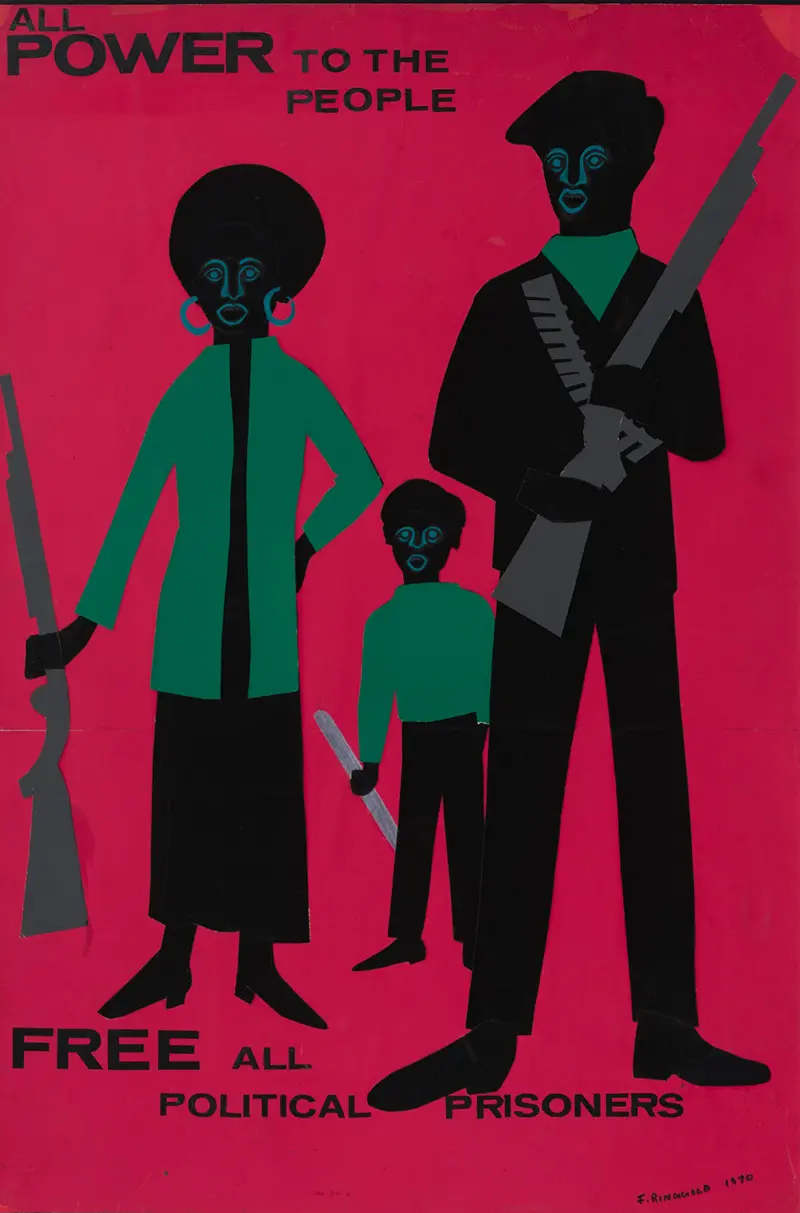
In 1970, she was arrested for her artwork “Flag for the Moon: Die Nigger,” which challenged societal injustices. Her famous work “American People Series #9: The American Dream” portrayed racial tension, while “American People Series #20: Die” captured the aftermath of the Harlem riots.
Ringgold’s art evolved. She began creating overtly feminist works, incorporating traditional “women’s work” materials like needles, thread, and cloth into her art, including masks, dolls, and fabric sculptures. In 1980, she collaborated with her mother to create her first full quilt, “Echoes of Harlem,” which she saw as a modern manifestation of a centuries-old Black tradition.
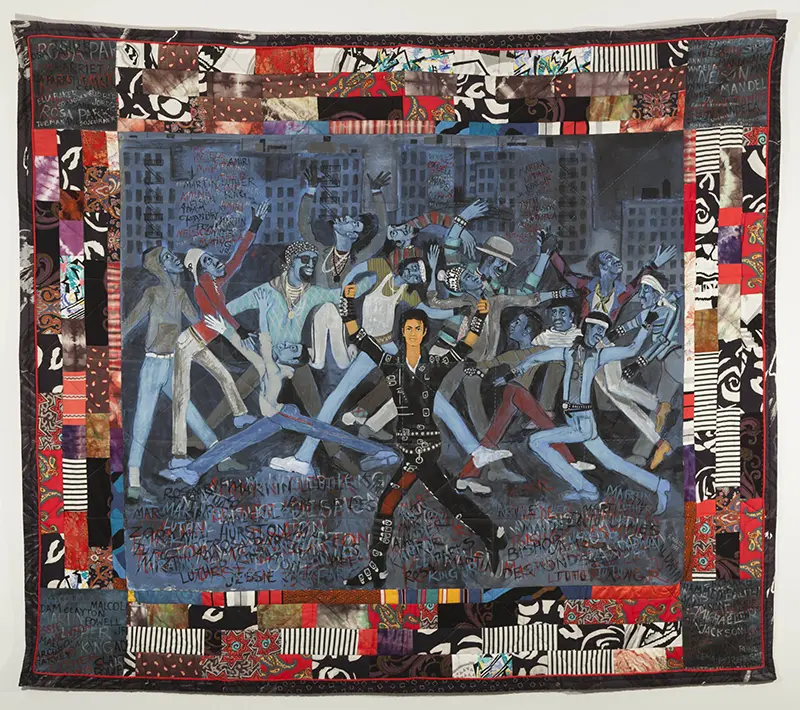
In 1983, Ringgold began incorporating narrative text into her quilts, creating a novel method of storytelling in visual art. “Who’s Afraid of Aunt Jemima?” was one of her “story quilts,” reimagining the stereotypical character as a Black feminist role model.
Critics of Ringgold’s work point out that barriers relating to her ethnicity, gender, and unshakable commitment to using art as a vehicle for social change contributed to her work’s worldwide recognition in major institutions.
Her work has been showcased all around the world, including at the White House and in esteemed museum collections including the Guggenheim Museum and the Metropolitan Museum of Art. Throughout her career, she won various honors, such as an NEA award and a Guggenheim fellowship.
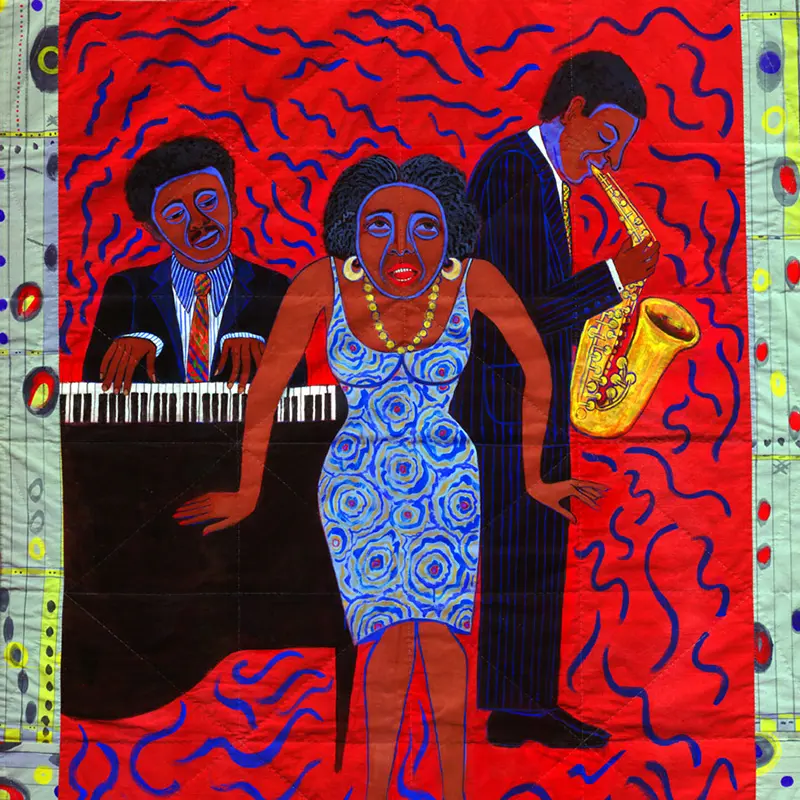
Major exhibitions like Soul of a Nation: Art in the Age of Black Power at Tate Modern in London in 2017 featured her work. Her first institutional solo show in Europe opened at the Serpentine Galleries in London in 2019 and went on to tour institutions in Sweden and the US.
Ringgold’s work is currently on display at the Barbican Art Gallery in London as part of the exhibition Unravel: The Power and Politics of Textiles in Art.
Read more about the artist at Black Women Artists: Shattering Stereotypes and Reclaiming Narratives

